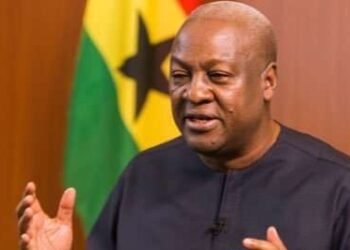In a Wednesday, June 12 speech, UN Secretary-General António Guterres emphasized the urgent need for fairer trade terms for the world’s poorest nations, many of which are “mired in debt” through no fault of their own.
Speaking on the 60th anniversary of the United Nations Conference on Trade and Development (UNCTAD), Guterres outlined the many challenges that must be addressed to create a more sustainable and inclusive global economy.
“New and protracted conflicts are having a ripple effect across the global economy. Global debt has soared while key development indicators, including poverty and hunger, have regressed.”
António Guterres
In his brief visit to Switzerland, Guterres reiterated previous warnings about the inadequacies of the current international financial system, describing it as “outdated, dysfunctional, and unjust.”
He emphasized that this system has “failed to provide a safety net for developing countries mired in debt.” He cautioned that the international trading system is “teetering on the verge of fragmentation.”
Amid rising geopolitical tensions, increasing inequality, and soaring debt, Guterres asserted that the role of UNCTAD is now “more relevant than ever” in striving for a more sustainable and inclusive global economy through trade and investment.
“The UN agency cannot be neutral on development problems,” Guterres declared, echoing the sentiments of Raul Prebisch, UNCTAD’s first Secretary-General, who famously compared this stance to the World Health Organization’s inability to remain neutral on malaria.
“Trade has become a double-edged sword: a source of both prosperity and inequality; interconnection and dependence; economic innovation and environmental degradation,” Guterres remarked.
He called for enhanced dialogue between nations, noting the near-tripling of trade barriers since 2019, many of which are driven by geopolitical rivalry without consideration for their impact on developing countries.
“The world cannot afford splits into rival blocs. To implement the Sustainable Development Goals (SDGs) – and to ensure peace and security – we need one global market and one global economy, in which there is no place for poverty and hunger.”
António Guterres
Guterres’ speech also touched on several key trends influencing global trade.
According to him, developing economies have significantly increased their share of global trade. Also, maritime trade has evolved, e-commerce has risen, and global emissions have increased.
The growing plastics trade, the persistence of commodity dependence, the surge in demand for critical minerals, and the alarming rise in global public debt are all factors shaping the current economic landscape.
Global Trade Growth Since 1964
Since its inception in 1964, UNCTAD has witnessed substantial growth in trade. Measured in current prices, trade in goods today is about 134 times greater than six decades ago.

The integration of national economies into the global system has been a driving force behind this remarkable growth.
Developing countries have greatly expanded their participation in global trade. Between 1964 and 2023, their share of world merchandise trade increased from 22% to 44%. Despite regional disparities and unequal benefits, trade has generated unprecedented prosperity overall.
Maritime trade, which accounts for about 80% of global goods transport, has also grown significantly. From 1970 to 2021, the volume of seaborne trade increased from 2.6 billion tons to nearly 11 billion tons.
Moreover, the advent of the standard shipping container revolutionized global trade, enabling the seamless transport of goods across rail, road, and sea. Between 2010 and 2022, world container port throughput grew by 56%.
As Guterres concluded his address, his message was clear: the right to development is intrinsically linked to fair trade.
The world must strive for a more inclusive and sustainable global economy, one that addresses the needs of the poorest nations and ensures no one is left behind.
READ ALSO: Minority Decries Gov’t’s ‘Flip-Flopping’ On Road Tolls




















